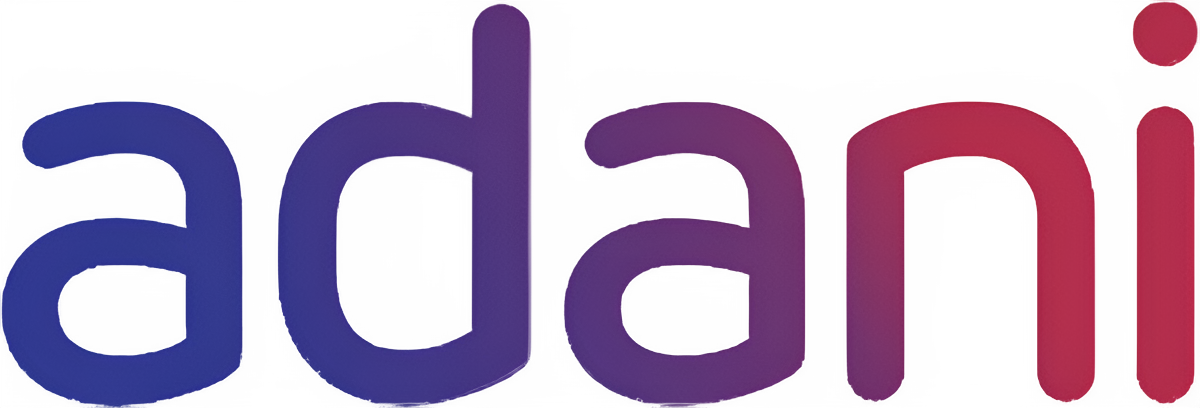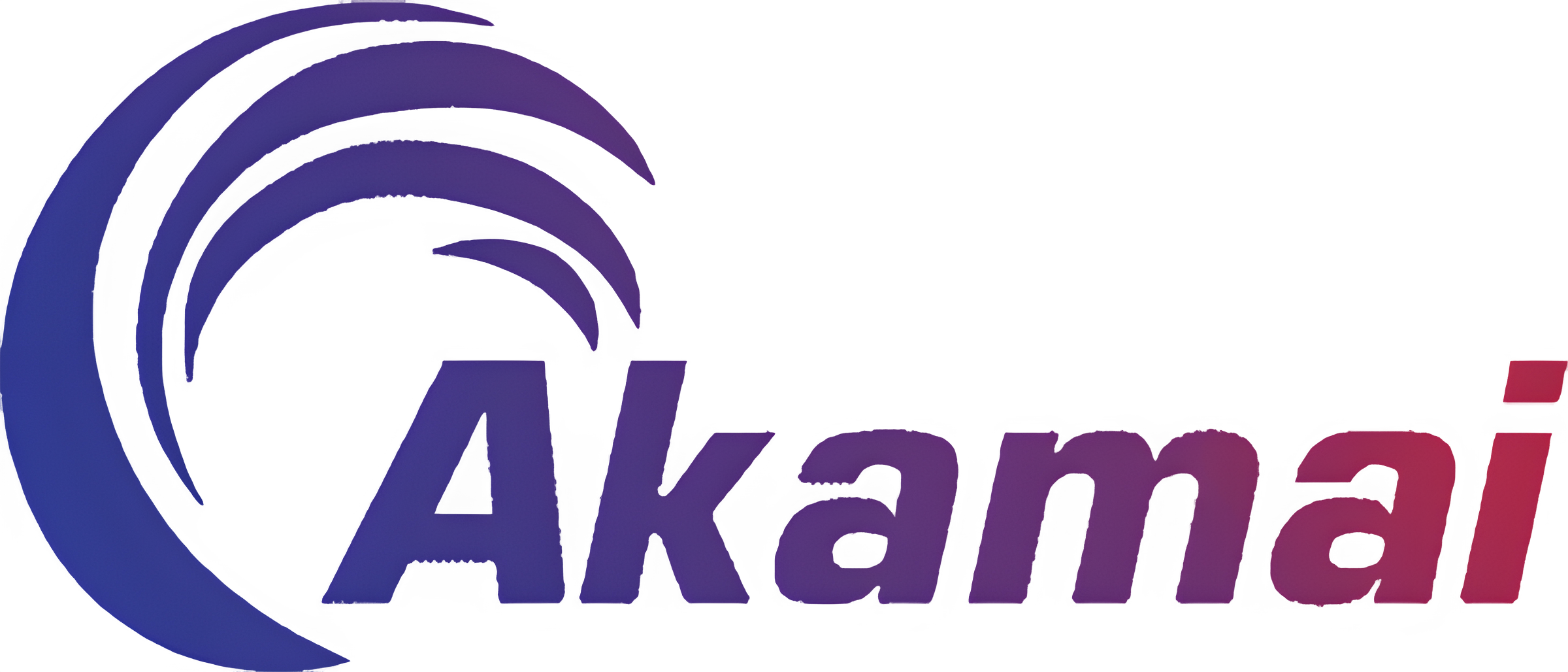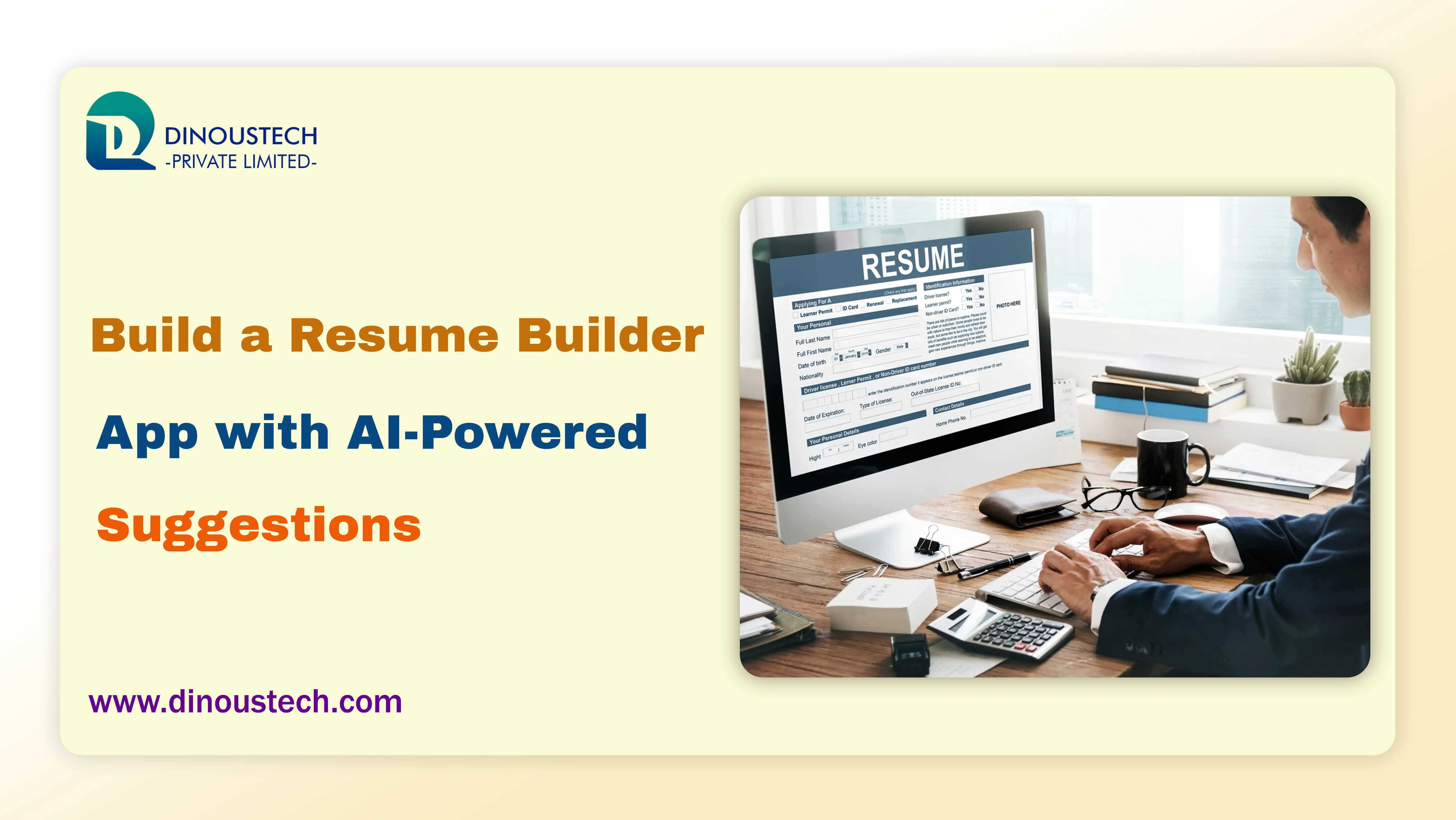Build a Resume Builder App with AI-Powered Suggestions
In today’s competitive job market, a standout resume can be the deciding factor in landing an interview. However, crafting a polished, effective resume isn’t easy for everyone. The process often requires time, knowledge of best practices, and an understanding of industry-specific keywords. This is where a resume builder app with AI-powered suggestions becomes a game-changer. By leveraging artificial intelligence, such an app not only streamlines the resume creation process but also helps users tailor their profiles to specific job requirements.
Developing a feature-rich resume builder app involves a combination of user-friendly design, robust backend architecture, and cutting-edge AI algorithms. At Dinoustech Private Limited, a best software development company and best mobile app development company, we specialize in creating custom solutions that meet these demands. From collaborating with an affordable web design company for visually appealing interfaces to integrating advanced AI modules, our approach ensures the final product is both functional and engaging. In this blog, we explore the essential components of building a resume builder app, the role of AI in enhancing user experience, and how a custom website development company like Dinoustech can bring this vision to life.
The Growing Need for Resume Builder Apps
Traditional resume creation methods—word processors and static templates—lack interactivity and often fail to provide real-time feedback. Job seekers frequently wonder if their document highlights the right skills or adhere to current formatting standards. Online resume builders have partially addressed this by offering templates, but many still require manual input and lack intelligent suggestions.
With advancements in AI and machine learning, modern resume builder apps can analyze job descriptions, suggest relevant skills, and tailor content dynamically. According to recent industry surveys, recruiters spend an average of just six seconds scanning a resume, emphasizing the need for concise, targeted information. An AI-powered resume builder can help users prioritize critical details, ensuring that resumes pass through applicant tracking systems (ATS) and catch the recruiter’s attention immediately. As a result, there is a growing demand for mobile and web-based solutions that simplify resume creation and improve hiring outcomes for job seekers.
Key Features of an AI-Enhanced Resume Builder App
The core appeal of a resume builder app lies in its ability to provide more than just templates. AI-powered features elevate the user experience by offering personalized guidance. First, the app should include a variety of professionally designed templates suited to different industries—IT, marketing, finance, and more. Users can select a template that aligns with their career goals and customize it with their data.
Next, AI-driven content suggestions help users refine their wording. By analyzing millions of job descriptions and successful resumes, machine learning models can recommend industry-specific phrases and keywords. When a user enters their job title or industry, the app suggests bullet points describing typical responsibilities and achievements relevant to that role.
Another critical feature is real-time feedback on overall resume quality. The AI engine evaluates factors such as readability, formatting consistency, and keyword usage, offering tips on where to improve. Additionally, a built-in ATS simulator can predict how well a resume will fare against common screening algorithms, highlighting areas that may be flagged or overlooked.
Advanced apps also include a skills-matching module. By scanning a target job posting, AI compares the user’s qualifications against the required and preferred skills, providing an alignment score and suggesting areas of improvement, such as adding certifications or highlighting soft skills. This level of personalization ensures that applicants can tailor their resumes for each position, significantly increasing their chances of landing an interview.
Designing an Intuitive User Interface
Creating a friendly, efficient interface is crucial for adoption. An affordable web designing company can ensure that the user flow is intuitive: from sign-up and profile setup to template selection and final download. Onboarding begins with a brief questionnaire gathering basic information—name, contact details, and job-seeking objectives. This data is stored securely while the user navigates through sections dedicated to personal information, education, work experience, skills, and additional sections like certifications and volunteer work.
The dashboard’s home screen highlights recent activity and provides quick access to unfinished resume drafts. Each section includes context-sensitive tooltips and examples that guide users in filling out fields correctly. For instance, if a user is entering a job title, the app presents popular variations to choose from, ensuring consistency.
When users select a template, a split-screen edit mode allows them to view their input in real time. Changes made on the left panel—such as adjusting text or moving sections—reflect immediately on the right. The AI assistant resides discreetly in a sidebar, offering suggestions when requested. Color-coding of essential fields (e.g., missing contact details in red) minimizes errors and speeds up completion. By collaborating closely with Dinoustech’s UI/UX team, these design principles create a frictionless, accessible experience that accommodates users of all technical levels.
Technology Stack for Resume Builder Apps
Choosing the right technology stack ensures performance, security, and scalability. On the frontend, cross-platform frameworks like React Native or Flutter allow developers to build seamless experiences for both iOS and Android with a single codebase. For the web version, modern JavaScript frameworks—React.js or Angular—create responsive, dynamic interfaces that complement the mobile app.
On the backend, a microservices-based architecture—using Node.js or Python (Django/Flask)—enables independent scaling of the AI engine, user management, and file generation services. A NoSQL database such as MongoDB can store user profiles and resume data, while a relational database like PostgreSQL handles payment transactions and metadata. Implementing caching mechanisms with Redis ensures rapid retrieval of commonly accessed templates and AI-generated suggestions.
Model-serving platforms power the AI components—TensorFlow Serving or PyTorch Serve—running pre-trained natural language processing (NLP) models that analyze text input and generate content recommendations. For more advanced personalization, recommendation engines using collaborative filtering or transformer-based architectures (such as BERT or GPT models) can be integrated.
The backend employs a PDF generation library to support resume downloads, such as PDFKit or WeasyPrint, that transforms the HTML/CSS templates into high-resolution documents. All communication between mobile, web, and server components is secured with TLS/SSL. Dinoustech’s engineering teams, recognized as a best software development company, select and implement these technologies to ensure the app remains robust, maintainable, and future-proof.
Integrating AI for Content Recommendations
At the heart of an AI-powered resume builder is the content recommendation engine. Natural language processing (NLP) algorithms parse job descriptions and resume entries, extracting key phrases and patterns. Pre-trained language models—fine-tuned on large corpora of professional resumes and job postings—understand context and suggest improvements to wording, structure, and keyword usage.
For instance, if a user enters “Sales Associate,” the AI can suggest bullet points like “Achieved 150% of quarterly sales targets through strategic client outreach” or “Managed customer relationships, resulting in a 20% increase in repeat business.” These suggestions are generated by retrieving and ranking similar job descriptions and resume entries in a knowledge base. Users can accept, modify, or reject these suggestions, ensuring that the final content reflects their authentic experience.
Additionally, sentiment analysis and readability metrics—calculated using models like VADER or Flesch-Kincaid algorithms—score the user’s text in real time. The app flags passive voice usage, vague language, or overuse of jargon, guiding users to adopt more engaging, concise phrasing. Context-aware grammar and spelling checks further polish the content.
To personalize recommendations, AI analyzes the user’s work history and skill set, then suggests relevant certifications or courses that strengthen weak areas. For example, if a user lacks proficiency in a recommended software tool, the app might recommend a link to a short tutorial or an online course. Dinoustech’s data scientists train and continuously update these models, ensuring that the AI remains accurate and aligned with evolving industry trends.
Ensuring Data Security and Privacy
Handling sensitive personal information—like addresses, phone numbers, and employment history—necessitates stringent security measures. Developers must implement end-to-end encryption (AES-256 for data at rest and TLS/SSL for data in transit) to protect user data. OAuth2 or JWT-based authentication ensures secure, tokenized login processes. Two-factor authentication (2FA) adds an extra layer of account safety.
Compliance with privacy regulations—such as GDPR in Europe and CCPA in California—requires transparent data policies and explicit user consent flows. Users should be able to request data deletion or export at any time. Any third-party APIs (for example, language processing or translation services) must adhere to strict privacy commitments.
Backend servers need regular security audits and vulnerability scans—ideally handled by a best software development company—to identify and patch threats promptly. Role-based access control (RBAC) ensures that only authorized personnel can access production environments. Dinoustech’s infrastructure architects design these safeguards from the ground up, giving users confidence that their personal data is stored and processed securely.
Monetization Strategies for Resume Builder Apps
Several monetization models can help achieve sustainable revenue. A popular approach is a freemium model: basic resume templates and AI suggestions are free, while premium templates, advanced AI features (like personalized career coaching), and unlimited downloads require a subscription. Monthly or annual plans can offer tiered access—Bronze, Silver, Gold—each unlocking additional features (e.g., cover-letter generation, LinkedIn optimization, or interview preparation quizzes).
Another model is in-app purchases: users pay for one-off services like a professional resume review or a customized career consultation. Affiliate partnerships with job boards or career training platforms can generate commissions when users click through or enroll in courses. In-app advertising—showing non-intrusive career-related ads such as online degrees or certification programs—offers supplementary income, as long as ads align with user interests and don’t detract from the core experience.
For enterprise clients—university career centers or recruitment agencies—white-label solutions provide branded resume builder portals. Offering a custom website development company service, Dinoustech can create dedicated web portals or micro-sites integrated with the mobile app. These B2B contracts often include premium support and customization, enhancing long-term revenue. By combining these strategies, a resume builder app can monetize effectively while continuing to provide value to individual users.
UX/UI Best Practices for Resume Builder Apps
User experience (UX) and user interface (UI) are critical in retaining users and ensuring they complete their resumes. An affordable web designing company can help craft visually appealing, responsive designs that work seamlessly across mobile and tablet screens. Clear navigation is essential: a progress bar at the top shows which sections—Contact, Education, Work Experience—are complete and which are pending. Icons and concise text labels guide users without overwhelming them with instructions.
The color palette should be professional: muted blues, grays, and whites create a calm environment, while accent colors (such as green or orange) highlight “Save” or “Next” buttons. Generous padding and whitespace prevent a cramped feel. Form fields auto-save user input and provide real-time validation—flagging missing or incorrectly formatted phone numbers or email addresses. Tooltips with concise examples assist users who are unsure how to describe their roles or skills.
On the AI suggestion side, incorporating an unobtrusive “lightbulb” icon next to work-experience fields invites users to “Get AI Suggestions.” When tapped, a small overlay provides context on how to apply suggestions, ensuring that users understand these are recommendations, not mandatory text. Contextual help links to short articles or FAQ pages that address common questions, such as how to list employment gaps or how to quantify achievements. Dinoustech’s UX team tests these flows with real users to iron out friction points and ensure the app’s interface remains intuitive and accessible for all skill levels.
Development Process and Agile Methodology
Building a high-quality resume builder app involves a structured development approach. At Dinoustech Private Limited, we follow Agile methodologies to maintain flexibility and deliver incremental value. The process begins with requirements gathering: workshops with stakeholders to identify essential features—AI suggestions, templates, social sharing, export options, and user management. User personas are created to represent the target audience, from recent graduates to mid-career professionals.
Next, sprint planning breaks down the project into two-week cycles, each focusing on specific modules: authentication, profile management, template selection, AI integration, payment gateway setup, and so on. Developers build features in iterative stages, conducting daily stand-ups to ensure coordination and continuous feedback.
Throughout development, quality assurance is integral. Automated unit tests cover core functions, such as saving user data and generating PDFs, while integration tests verify that AI suggestion services respond correctly. Manual exploratory tests uncover edge cases, like handling special characters in input fields or testing performance under heavy user load.
After multiple sprints, a beta version is released to a limited user group, often drawn from early adopters or a university career center. Real-world feedback guides refinements, exposing usability issues and minor bugs. Finally, the public launch occurs, followed by ongoing maintenance—security patches, performance optimizations, and feature enhancements as usage data and user feedback inform the product roadmap. Dinoustech’s project managers ensure transparency during each phase, delivering a polished, market-ready application on time and within budget.
Marketing and User Acquisition Strategies
A strong marketing strategy is as important as the app itself. For a resume builder, potential user segments include students, job seekers, and professionals seeking career transitions. App Store Optimization (ASO) is crucial: targeting keywords like “resume maker,” “AI resume builder,” “CV builder,” and “job application app” in the app’s title, subtitle, and description improves discoverability. Eye-catching app icons and screenshots highlighting AI suggestions and polished templates help convert store visitors into users.
Content marketing on a custom website development company portal can attract organic traffic. Blog posts on topics such as “How to Craft a Winning Resume in 2025” or “Top 10 Resume Mistakes to Avoid” position the brand as a career authority. SEO efforts focus on high-volume queries like “resume templates,” “AI resume tips,” and “best free resume builder.” Social media channels—LinkedIn, Instagram, and Facebook—feature user success stories, before-and-after resume comparisons, and career advice snippets.
Influencer partnerships with career coaches or university career centers expand reach. Hosting webinars or workshops on resume writing and interviewing tips can funnel attendees to download the app. Email campaigns targeting new graduates, launched in collaboration with colleges, offer free premium trials for a limited period. Referral programs incentivize existing users to invite peers by awarding them additional template unlocks or resume critiques. Dinoustech’s marketing specialists craft these integrated campaigns to maximize user acquisition and retention.
Post-Launch Maintenance and Continuous Improvement
Launching is only the beginning; maintaining relevance requires constant attention. Dinoustech’s support teams monitor key metrics—daily active users, completed resumes, and AI suggestion acceptance rates—to identify friction points and growth opportunities. Crash reporting tools and performance monitoring pinpoint technical issues, guiding quick fixes.
Regular updates introduce new AI models trained on fresh datasets, reflecting evolving job market trends and language usage. Periodic security audits ensure ongoing data privacy compliance. User feedback channels—such as in-app surveys and reviews—surface feature requests, like LinkedIn integration or video resume options.
Expanding the template library with fresh designs—aligned to trends in modern resume formatting—keeps content current. Adding new language support opens up international markets. Strategic A/B testing of UI elements and pricing plans optimizes conversion metrics. Dinoustech’s iterative development cycles ensure the app adapts to user needs, technological advances, and market shifts, maintaining its position as a premier resume builder app.
Conclusion
Building a resume builder app with AI-powered suggestions transforms how job seekers approach their professional documents. By automating best practices, such as keyword optimization, achievement quantification, and readability checks, AI-driven tools help users create standout resumes in minutes. Key components include a user-friendly interface, robust AI algorithms, secure data handling, and a reliable technology stack. Monetization can leverage freemium models, in-app purchases, and enterprise partnerships. Effective UX/UI design—supported by an affordable web designing company—ensures accessibility, while a best mobile app development company like Dinoustech crafts seamless, responsive experiences across devices.
For organizations looking to deliver a powerful resume builder app, partnering with the best software development company is crucial. Dinoustech Private Limited offers end-to-end expertise: from UI/UX design and AI integration to backend architecture and ongoing maintenance. By embracing this collaborative, agile approach, businesses can launch comprehensive resume builder platforms that empower users to master their career narratives and unlock new professional opportunities.

















